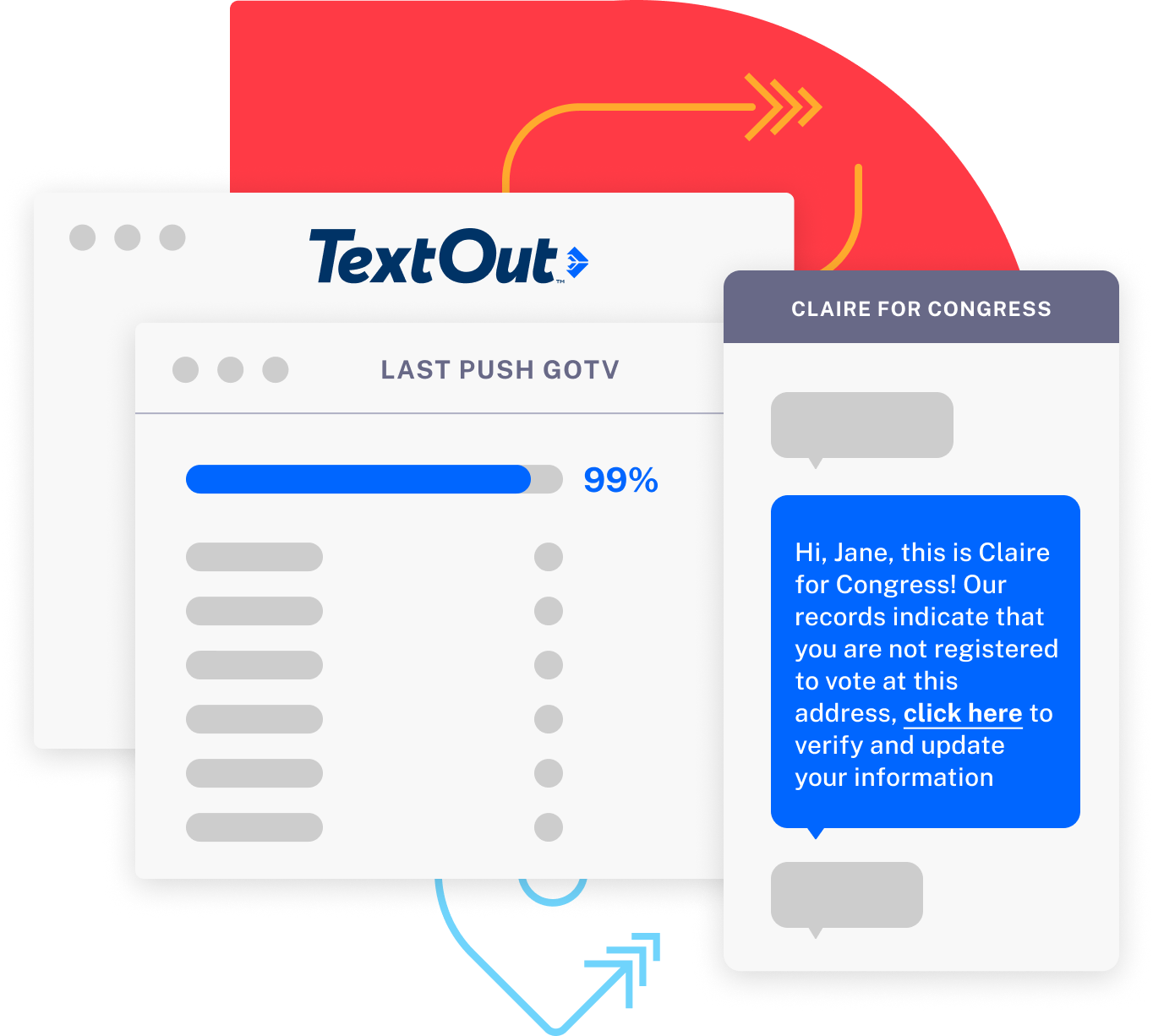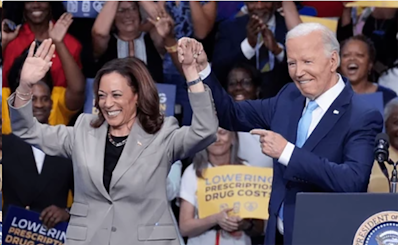Political texting has proven to be an incredibly effective tool, particularly for Get Out the Vote (GOTV) efforts. By reaching voters directly on their mobile devices, campaigns can provide timely information, offer reminders, and inspire individuals to take action on Election Day. More than just logistical reminders, political texts also have the power to overcome voter apathy and reinvigorate civic participation.
Impact on voter turnout
Political texting has become a transformative tool for boosting voter turnout, offering a direct, personal way to engage citizens. By sending timely, relevant messages to voters’ mobile devices, campaigns can bypass traditional barriers to participation and spark action at just the right moments. With platforms like TextOut, a team of experts manages these two-way interactions, allowing voters to engage in real conversations with trained professionals. This type of outreach is more than just a reminder — it can be a powerful motivator that cuts through the noise of everyday life.
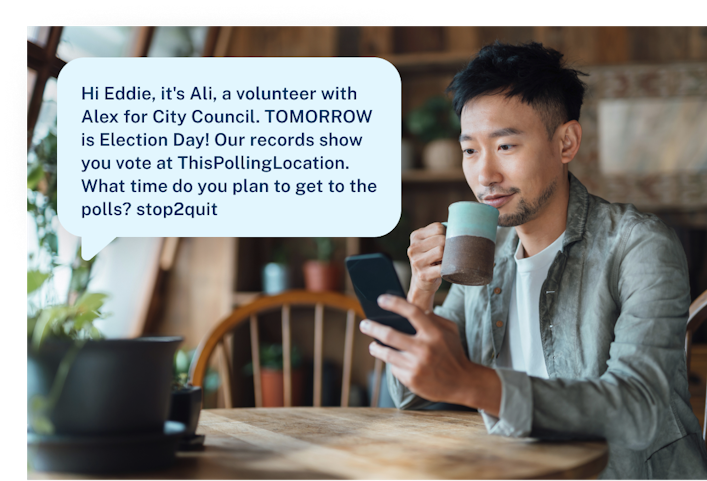
Imagine a scenario where voters receive a clear, concise text message the day before Election Day. That message not only reminds them of their civic duty but also provides crucial information, such as polling locations, early voting options, or key deadlines. For many voters, these messages act as nudges, moving them from indecision to action. The convenience and immediacy of text messaging make it an ideal vehicle for GOTV (Get Out The Vote) efforts, particularly when many people have busy schedules or may feel overwhelmed by the voting process.
Political texting is especially effective at targeting specific voter groups that might otherwise be disengaged, such as younger voters, those who are less likely to vote regularly, or voters who may be unsure of how or where to cast their ballots. Through segmented and personalized outreach, texting campaigns can meet voters where they are — providing answers to questions, offering reassurance, and simplifying the steps involved in voting.
For example, a well-timed text message can encourage early voting by highlighting its convenience and explaining how to access nearby early voting centers. Voters can be reminded multiple times throughout the election period, building momentum and reinforcing the importance of participation. With each message, the psychological barrier to voting decreases, making it easier for individuals to follow through.
The power of political texting is also evident when addressing logistical challenges. Many voters don’t participate because they are unsure about their registration status, where their polling place is, or what they need to bring. Texting campaigns can tackle these issues head-on by delivering essential information directly to voters, ensuring they have all they need to make voting simple and stress-free. This valuable information empowers voters to be more confident and therefore, more likely to turnout to vote.
In essence, political texting serves as a catalyst for higher voter engagement and turnout. With two-way personalized, actionable, and well-timed messaging, texting campaigns can tap into the potential of millions of voters, turning reminders into results and ensuring more voices are heard at the ballot box. The possibilities for this technology to further shape the future of voter engagement are vast, and with continued refinement, political texting can become an even more integral part of the democratic process.
Using Texts for Ballot Chase
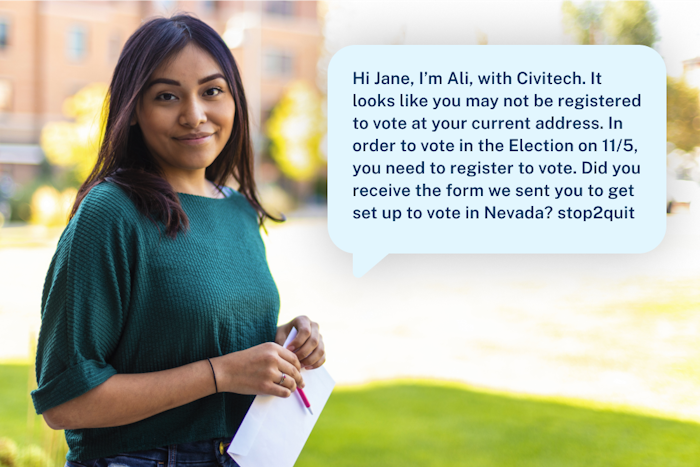
Texting is also a powerful tool for ballot chase efforts, where campaigns remind voters to return their mail-in ballots. Once a voter receives their ballot in the mail, targeted text messages can serve as timely reminders if the ballot hasn’t been returned. These messages can include helpful information, such as deadlines, ballot drop-off locations, and instructions for properly completing the ballot. By sending personalized follow-up texts, campaigns can ensure voters don’t forget to return their ballots, significantly increasing turnout in mail-in voting.
Best Practices for Political Texting in GOTV Efforts
To maximize the effectiveness of political texting for GOTV, campaigns should consider the following best practices:
Personalize the Message: Voters respond better to messages that feel personal and relevant to them. Use the recipient’s name and reference specific issues or topics they care about. Personalization increases the likelihood that a voter will engage with the text and act on the information provided. Our team of experts can help you craft tailored messages that effectively engage your voters.
Be Clear and Concise: A text message should be short, informative, and to the point. Whether it’s a reminder to vote, polling location information, or a call to action, voters should be able to understand the message within seconds.
Timing is Everything: Send messages at strategic times, such as right before Election Day or during early voting periods. We can help you create an optimal messaging schedule, drawing on our extensive knowledge and experience.
Focus on Actionable Steps: GOTV texts should include clear next steps — whether that’s confirming a voter’s polling place, encouraging early voting, or providing links to voter registration resources. Clear instructions drive voter engagement.
Follow Up: A single message might not be enough to spur action. Follow up with voters who haven’t yet voted, but be cautious of over-messaging, which can lead to annoyance and disengagement. We recommend sending two messages for GOTV, with an additional two if you're also sending Early Voting reminders.
Using Texts to Overcome Voter Apathy
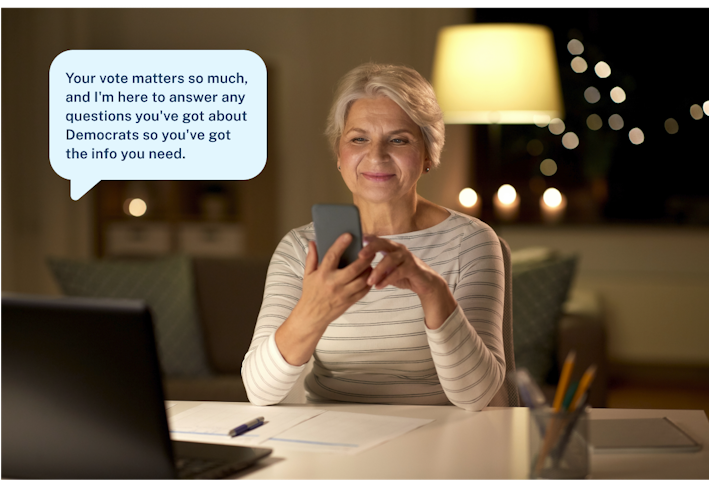
In addition to logistical reminders, political texts can play a critical role in addressing voter apathy — a common challenge in many elections. Whether due to disillusionment, feeling disconnected from the political process, or simply a lack of motivation, many voters opt out of casting their ballots. Here’s how political texting can overcome this hurdle:
Creating a Sense of Urgency: Texting allows campaigns to send timely messages that emphasize the importance of a single vote. By framing the election as close or pivotal, campaigns can create a sense of urgency that encourages hesitant voters to participate.
Appealing to Civic Duty: Voters can be reminded of their role in shaping the future of their community. Appeals to civic responsibility and the power of one’s vote can emotionally resonate with voters, motivating them to engage. A well-timed text can remind people of their values, linking them back to the importance of their vote and the impact it can have on their local community.
Providing Reassurance and Removing Barriers: Many voters avoid the polls because they feel uncertain about the voting process — whether it’s about registering, finding their polling place, or knowing their eligibility. Two-way texts, answered by real people, can provide reassurances or answer common questions can eliminate these barriers and make voters feel more confident about casting their ballots.
Offering Encouragement and Empowerment: Voter apathy is often rooted in feelings of powerlessness. Texts that emphasize the collective power of voters to influence change can be inspiring. Messaging that highlights the impact of previous elections where small margins decided the outcome can show voters that their participation matters.
Engaging Younger and First-Time Voters: Younger voters and first-time voters are more likely to engage with text messages than traditional forms of political outreach, such as phone calls or emails. Texting can effectively reach these demographics by presenting voting as an easy, accessible, and meaningful act.
The Psychological Impact of Well-Timed Texts

Research into voter behavior shows that the timing and content of a message can trigger psychological responses that influence decision-making. For example, loss aversion, a well-known psychological phenomenon, can be leveraged in political texts. Voters are more likely to act when they feel they might lose something important, such as control over personal rights or freedoms (e.g., their body, who they can marry, etc.).
Well-timed texts — sent just before or during key voting windows — can tap into these psychological triggers, reminding voters that the consequences of not voting may result in losing control over issues they care about. Similarly, texts that offer positive reinforcement, such as “Your vote could be the deciding factor,” inspire action through empowerment rather than guilt.
The Future of Political Texting for GOTV
Political texting continues to evolve as one of the most impactful tools for increasing voter turnout and combating apathy. Campaigns that leverage personalized, strategic, and emotionally resonant messages can transform disengaged voters into motivated participants, ensuring that their voices are heard on Election Day.
As technology advances, so too will the opportunities to refine and optimize political texting strategies. For campaigns aiming to maximize their GOTV efforts, there’s no better time than now to invest in the power of texting to reach and engage voters. At Civitech, we're ready to talk texting strategy with you. Contact us by email or use our contact form, and we’ll be in touch shortly!


